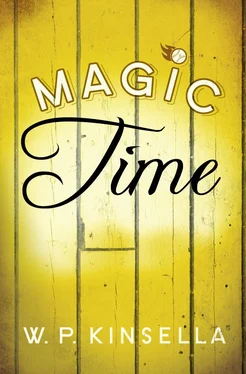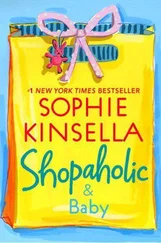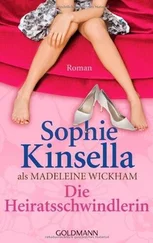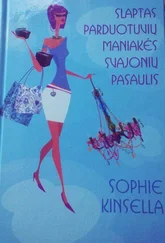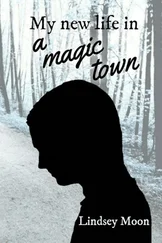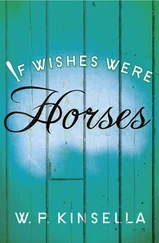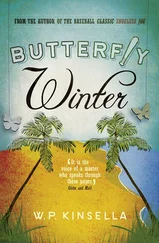‘You boys got the best of both of us,’ Dad would say, holding up a picture of Mom smiling over a birthday cake flaming with twenty-three candles, Dad behind her chair, crouched in order to get into the picture, grinning like a fool, his fingers in a V above Mom’s head, making her look like she has rabbit ears.
‘You’re both built strong like me, with big bones, but you’re good lookin’ like your mom.’
Byron is stocky, but he has Mom’s red hair and green eyes. I’m tall and slim like Mom, but I’m strong-boned and have huge hands like Dad. My hair is reddish-brown, and has a cowlick that refuses to submit to a comb, my eyes a greeny-hazel.
Mom’s name before she married Dad was Grace Palichuk. Her grandfather had emigrated from Ukraine to work in the packing plants in Chicago. My grandfather, Dmetro Palichuk, followed in his father’s footsteps at the packing plant, but chose an Irish girl to marry, Margaret Emily O’Day, with dark rose-colored hair, green eyes, and freckles.
Our family name is Houle. My father’s name is Gilbert. Dad claimed the original Houle was a smuggler and privateer, a crewman on Jean Lafitte’s pirate ship.
‘Lafitte and his men fought for the Americans in the Battle of New Orleans and were pardoned by President Madison. I saw the pardon, or at least a copy of it, when I was a boy. That original Houle settled on Galveston Island after the Civil War, but who knows how one of his descendants got to Chicago?’
Sometimes Dad tells of a descendant of that first American Houle, a Wells Fargo driver and buffalo hunter in the Dakota Territory, who married a Black Hawk Indian woman (or Nez Perce, depending on his mood) and later became a livestock dealer before being wiped out by the great Chicago fire.
‘Your great-grandfather got mistaken for Billy the Kid. This was in some wild Colorado mining town. He was a skinny little guy with a big mustache. The town folks spotted your great-grandfather riding into town, and some young bucks tried to force him into a gunfight. He moved real careful and unbuckled his guns, let them fall to the ground. “You wouldn’t shoot an unarmed man would you?”
‘They didn’t shoot him, but they flung him in jail and decided to have a public hanging in three days. And it would have gone ahead except the real Billy the Kid rode into town. It was said he had a look about him, a rock hardness, a death-like stare. Nobody tried to provoke him into a gunfight. He made it clear he was Billy the Kid, and dared anybody to do anything about it. He even visited your great-grandfather in jail. He laughed when he saw him. “You look like a gunfighter Ned Buntline might have invented. You don’t look nothin’ like me,” Billy said.
‘“Send this little cowboy on his way,’ Billy told the sheriff, and the sheriff did as he was told. It’s said your great-grandfather never again wore a gun on his hip, and skedaddled out of Colorado like he was being chased.
‘It was one of his boys that got fleeced out of his socks in a gold-stock scam. I did see a photo of him, and he resembled your cousin Verdell in California; you know, a boy so dumb he’d sell his car for gas money.’
* * *
Mom died after being hit by a car right in front of our house. We lived in this quiet, working-class suburb of Chicago, in a wartime house, one of thousands of almost identical box-like structures built right after the Second World War to house returning servicemen and their families. The house was already twenty-five years old when my parents acquired it, just a year before Mom was killed.
Schiffert Box and Lumber, where Dad worked, was an old-fashioned company that had been founded in 1890. They hadn’t manufactured wooden boxes since the 1960s, but retained that part of the name. Dad got paid every Friday, in cash. It’s only within the last five years that Schiffert has paid by check and at two-week intervals.
Every Saturday morning Mom would do the weekly grocery shopping. On Friday evenings she would circle the loss leaders in each grocery ad or flyer, then we’d tour the supermarkets buying only the items on sale.
I was holding Byron’s hand, walking from the house, across the lawn, which Dad kept smooth as a golf green, toward our Ford Maverick, parked at the curb. The car was a shade of gold that Dad laughingly said the used-car salesman had referred to as Freudian Gilt.
The day was hot and breezy, with a few sheep-sized white clouds floating across the sky. Mom was wearing a white dress with red anchors patterned on it, white shoes, and a wide-brimmed straw hat with a red ribbon around the crown. Her family had been over for dinner the previous Sunday and Mom had borrowed some folding chairs from Grandma Palichuk, which we were going to return after shopping.
Mom had the trunk of the car open, had one chair inside and was reaching for a second when a gust of wind whipped her hat off. The hat hit the pavement beside the car, turned on edge, and rolled like a plate into the street. Mom moved instinctively to chase it.
She only took about three steps, the street was narrow and three steps was far enough for her to move right into the path of an oncoming car, driven by George Franklin, who lived only a block down the street. George Franklin didn’t even have time to apply the brakes. The car hit Mom, carried her about twenty feet down the street and deposited her on the pavement. I can still hear the sound of her head hitting the street. She died instantly, the doctor who arrived with the ambulance said.
Dad was mowing the back yard with a gas lawnmower, so he didn’t know anything unusual was going on. Someone had to go to the back yard and get him. The neighbors didn’t think to keep Byron and me away from the scene. I was sobbing because I knew what had happened was not play. Byron and I looked down at Mom, and Byron said, ‘Mama sleeping?’ and through my tears I said, ‘Yes, Mama’s sleeping.’
Then a woman in a swirling gray housedress took us each by the hand and hurried us into her house. Even though the doctor pronounced Mom dead at the scene, Dad insisted on riding with the ambulance to the hospital.
Mr. Franklin was not at fault. He wasn’t speeding. He was in the correct lane. His car was in good mechanical condition. Between the accident and the funeral, Dad walked us down the block to Mr. Franklin’s house. I held onto his right hand, and he carried Byron in the crook of his left arm.
Mr. Franklin was a tall, gaunt man with a hairline that went back like a horseshoe, a crooked nose, and sad blue eyes that protruded slightly.
‘I just want you to know I realize what happened was an accident,’ Dad said to him. ‘There was nothing you could do. Gracie should have looked before she ran into the street after her hat. You were just in the wrong place at the wrong time. It could have happened to anyone.’ Dad held out his hand to Mr. Franklin.
Mr. Franklin’s hand was trembling violently as he reached to shake my dad’s extended hand. He spoke very softly. He said he hadn’t slept since the accident, didn’t know if he’d ever sleep again.
‘Don’t be hard on yourself,’ Dad said. ‘It could have been your wife. It could have been me driving home from the hardware store on a Saturday morning.’
There was no way Dad could have done more – I don’t know if I could be so generous in similar circumstances – but what he did wasn’t enough. Mr. Franklin had a nervous breakdown, lost his job as an accountant with the Grain Exchange. He stopped driving. His family left him. He stayed home alone and drank all day. On the first anniversary of my mother’s death Mr. Franklin put a gun to his head and ended his pain.
Dad had a married sister in Kansas City; my mother had one in Chicago and one in Milwaukee; and Grandma Palichuk lived only a ten-minute drive from us. Each of them volunteered to take Byron and me, to care for us and to raise us as their own.
Читать дальше
